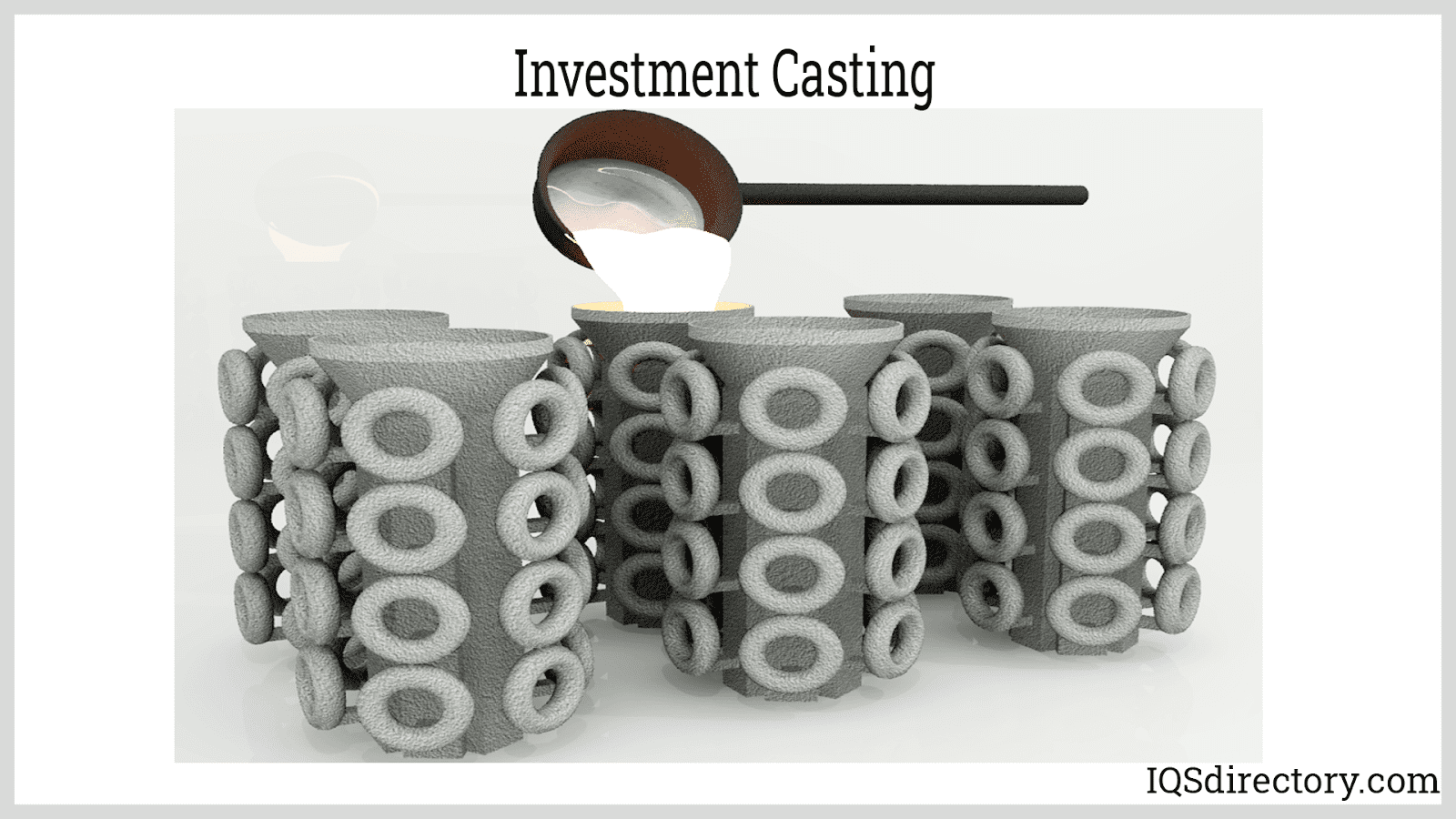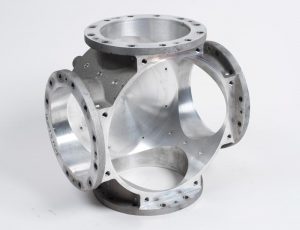Precision aluminum casting techniques that enhance production efficiency
Wiki Article
The Impact of Ingenious Factory Providers on Sustainable Manufacturing Practices
Ingenious shop services play an important duty beforehand sustainable production practices. By integrating recycling innovations and energy-efficient procedures, these solutions substantially reduce ecological effect. Factories can reclaim important products, therefore reducing dependence on virgin resources. As automation and lean production concepts obtain traction, production effectiveness is maximized. Nevertheless, the complete degree of these improvements and their effects for the future of producing remain to be checked out.The Duty of Advanced Recycling Technologies in Foundries
Advanced reusing modern technologies are changing the landscape of shops by enhancing material recovery and minimizing waste. These innovative procedures allow shops to redeem beneficial metals and materials from scrap, lessening reliance on virgin resources. By incorporating advanced sorting, shredding, and melting strategies, shops can effectively remove functional materials from discarded products, thus advertising a circular economy.These technologies support the manufacturing of high-grade alloys and parts, making sure that recycled products satisfy rigid market standards. Consequently, shops are not only improving their material effectiveness however likewise reducing the environmental effect connected with typical manufacturing methods
This shift in the direction of advanced recycling not only reinforces economic stability for foundries however additionally aligns with worldwide sustainability goals. Ultimately, the consolidation of these technologies stands for a substantial progression in the mission for sustainable production practices within the factory sector.
Energy Efficiency: Minimizing Usage in Manufacturing Processes
Energy effectiveness in making processes is critical for sustainable procedures. Approaches such as process optimization techniques, renewable resource integration, and waste warm healing play essential duties in reducing energy usage. By concentrating on these areas, producers can significantly reduce their environmental impact while enhancing productivity.Process Optimization Techniques
A significant variety of producing centers are progressively embracing procedure optimization methods to enhance power efficiency and decrease intake. These techniques include refining and evaluating manufacturing workflows, identifying bottlenecks, and implementing automation to improve procedures. By leveraging data analytics, producers can keep track of energy use in real-time, allowing proactive adjustments to reduce waste. Strategies such as Lean Manufacturing and 6 Sigma concentrate on eliminating inefficiencies and optimizing resource allocation. Furthermore, advanced technologies like Web of Things (IoT) sensing units give understandings right into devices performance, promoting predictive upkeep that prevents power loss. Generally, these process optimization approaches not only add to lowered energy usage however likewise promote a society of continual renovation within producing atmospheres, aligning functional methods with sustainability goals.Renewable Energy Assimilation
Many production facilities are significantly integrating renewable energy resources to boost general energy performance and reduce dependence on traditional power grids. This change consists of the fostering of solar, wind, and biomass power, which can greatly reduce and decrease functional prices carbon footprints. By utilizing these lasting energy resources, suppliers not only reduce their environmental effect but likewise boost power strength. On top of that, incorporating renewable resource systems usually entails innovative innovations such as power storage and clever grid options, which enhance energy usage and help with real-time tracking. This assimilation sustains producers in achieving regulatory compliance and conference sustainability goals while fostering advancement in manufacturing procedures. Ultimately, renewable resource assimilation stands for an essential change towards more lasting production techniques and lasting practicality.Waste Warm Recuperation
Incorporating renewable power sources establishes the stage for more developments in power efficiency, specifically through the application of waste warmth recuperation systems. These systems capture excess thermal energy created throughout making processes, which would certainly otherwise be lost to the environment. By repurposing this heat, foundries can substantially reduce their power consumption, reduced functional expenses, and decrease their carbon impact. The recuperated warmth can be made use of for numerous applications, such as home heating, power generation, or pre-heating basic materials. As a result, waste warmth recovery not only improves energy effectiveness however likewise adds to a sustainable manufacturing design. Cutting-edge factory solutions that prioritize this technology are leading the way for an eco responsible industrial landscape, lining up profitability with ecological stewardship.Using Eco-Friendly Products in Foundry Procedures
As the demand for sustainable production methods grows, foundries are increasingly transforming to environmentally friendly materials to boost their procedures. By integrating sustainable alternatives, such as bio-based binders and recycled metals, factories can considerably minimize their environmental impact. These materials frequently call for less energy for processing and can lessen hazardous emissions throughout manufacturing.The fostering of green products not only straightens with regulative criteria yet likewise fulfills consumer choices for greener products. Foundries are discovering cutting-edge options, such as utilizing organic ingredients that enhance mold and mildew high quality while remaining non-toxic.
The shift to sustainable materials promotes a round economic situation by promoting source reuse and minimizing waste. Additionally, this modification can enhance the general performance of shop procedures, as environmentally friendly products usually exhibit superior properties, leading to boosted item efficiency - Precision aluminum casting. Ultimately, the application of environment-friendly products stands for a vital action towards lasting manufacturing in the foundry market

Technologies in Waste Monitoring and Reduction Techniques
The change in the direction of environmentally friendly products in factory operations leads the method for improvements in waste monitoring and reduction techniques. Innovative shop services are progressively embracing techniques that minimize waste generation and advertise recycling. Techniques such as closed-loop systems enable the reuse of products, considerably minimizing the quantity of waste generated during manufacturing processes. Additionally, advancements in filtering and separation innovations enable the effective healing of useful spin-offs, which can be reintegrated into the production cycle.Furthermore, the implementation of real-time tracking systems gives data-driven insights into waste generation patterns, helping with notified decision-making to enhance resource use. Shops are also checking out biowaste services, transforming natural waste right into energy or useful materials, additionally promoting sustainability. These advancements not only contribute to a circular economic climate yet additionally boost the overall ecological efficiency of shop procedures, emphasizing the industry's dedication to reducing its environmental impact.
The Effect of Automation on Sustainable Production
While numerous markets purpose for sustainability, automation becomes a necessary element in enhancing lasting manufacturing methods within shops. By integrating automated systems, factories can accomplish greater effectiveness, lower waste, and reduced energy consumption. Automated procedures permit specific control over manufacturing parameters, decreasing problems and Aluminum Casting Company revamp, which consequently conserves sources.Automation facilitates the tracking of ecological impacts, making it possible for real-time modifications that align with sustainability objectives. Advanced robotics and expert system can optimize material use, bring about considerable reductions in scrap and exhausts
In addition, automated innovations advertise much safer workplace by taking care of harmful jobs, thereby boosting worker well-being while making sure compliance with environmental guidelines. On the whole, the adoption of automation within foundries not just enhances procedures but also plays a crucial duty ahead of time sustainable production techniques, adding to an extra responsible commercial landscape.
Case Studies: Effective Execution of Sustainable Factory Practices
Successful execution of lasting techniques in shops can be shown via different instance researches that highlight innovative approaches and quantifiable results. One significant example is a mid-sized factory that adopted a closed-loop water recycling system, lowering water consumption by 40% and decreasing wastewater generation. Additionally, this facility changed to making use of environment-friendly mold products, which not only enhanced item quality yet additionally enhanced worker safety.One more considerable instance entailed a large foundry integrating renewable resource resources, such as photovoltaic panels, which balance out 30% of its energy needs. This campaign not just decreased operational expenses but likewise contributed to a substantial reduction in carbon discharges.
Last but not least, a factory that applied lean manufacturing techniques reported a 25% rise in effectiveness, resulting in less material waste and optimized production processes. These instances jointly underscore the substantial benefits and sustainability innovations achievable via ingenious foundry methods.
Frequently Asked Inquiries
Exactly How Do Cutting-edge Factory Solutions Add To Overall Sustainability Goals?
Cutting-edge factory solutions boost overall sustainability objectives by maximizing source use, decreasing waste, and enhancing energy performance. These developments contribute to reduce carbon footprints and advertise ecologically liable practices within the production industry, sustaining more comprehensive sustainability initiatives.What Are the Economic Conveniences of Adopting Sustainable Factory Practices?
Taking on sustainable factory techniques can decrease functional expenses, improve resource effectiveness, and improve competition. Additionally, these practices can draw in eco-conscious consumers and investors, ultimately resulting in enhanced productivity and lasting financial feasibility for companies.How Can Small Factories Carry Out Sustainable Developments Efficiently?
Small shops can carry out lasting innovations successfully by taking on energy-efficient technologies, optimizing source use, educating staff on sustainable techniques, working together with providers for environment-friendly materials, and taking part in continuous improvement processes to minimize waste and discharges.What Accreditations Exist for Lasting Foundry Workflow?

Just How Do Consumer Preferences Impact Lasting Production in Foundries?
Consumer preferences considerably influence sustainable manufacturing in foundries by driving need for environment-friendly products. As consumers focus on sustainability, shops i loved this adapt their practices, including greener technologies and find out here products to satisfy market assumptions and improve their competitive advantage.By repurposing this warm, factories can considerably lower their power consumption, lower functional costs, and decrease their carbon footprint. Factories are likewise checking out biowaste solutions, converting organic waste right into power or useful products, additionally promoting sustainability. By integrating automated systems, foundries can achieve higher effectiveness, minimize waste, and lower power usage. An additional significant instance involved a huge factory incorporating sustainable energy sources, such as solar panels, which balance out 30% of its power requires. Cutting-edge factory services boost overall sustainability objectives by maximizing resource use, lowering waste, and enhancing energy effectiveness.
Report this wiki page